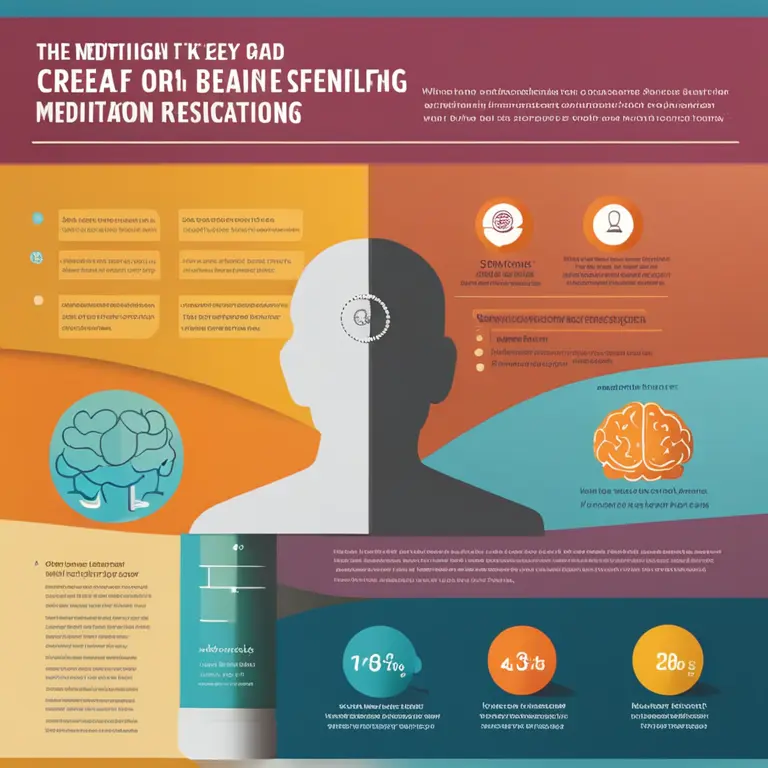
Meditation and Mindfulness: A Synergy for Focus
Discover how meditation fosters mindfulness and the benefits it brings to mental clarity and well-being in this insightful article.
article by Hina Kurosawa
The Essence of Meditation for Mindfulness
Meditation has been practiced for millennia, originating from ancient traditions aimed at deepening spiritual insight and calmness. In the contemporary sphere, it has been embraced as a secular practice which aids in fostering mindfulness—a state of active, open attention on the present moment. Engaging in meditation can help individuals observe their thoughts and feelings without judgment, leading to a heightened sense of awareness and presence within daily life.

Scientific Backing for Meditation
Studies conducted in the 2020s and beyond have consistently highlighted the efficacy of meditation in promoting mindfulness. Neuroscientific research reveals that regular meditation can alter brain structure, particularly in regions associated with attention, emotion regulation, and self-awareness. As of 2024, emerging research continues to validate these findings, reinforcing the idea that meditation can have a profound impact on cognitive processes and emotional well-being.

Meditation Techniques and Mindfulness
Mindfulness meditation is but one strand in the tapestry of meditative practices. It specifically involves paying deliberate attention to thoughts, feelings, and sensations without attaching judgment. Other forms, such as focused attention meditation, may involve concentrating on a particular object or sound. While techniques vary, the central tenet of cultivating a moment-to-moment awareness remains a core aspect of the practice, aiding participants in anchoring their thoughts to the here and now.

Integrating Meditation into Everyday Life
Meditation's versatility means it can be seamlessly integrated into everyday routines. Whether through formal sitting practices or mindful walking, it offers a portable set of skills that can heighten mindfulness throughout the day. With the ubiquity of smartphone apps and online platforms in 2024 offering guided sessions, learning and practicing meditation has become more accessible than ever, allowing individuals from various walks of life to reap its benefits.

The Benefits Beyond the Mind
The advantages of a meditation-induced mindful state extend beyond improving focus and psychological resilience. Research has linked consistent meditation practice to physical health benefits, such as lowered blood pressure, improved immune function, and reduction in chronic pain. These physical health improvements, coupled with mental enhancements, contribute to an overall better quality of life and a profound sense of well-being.
Challenges and Considerations in Practice
Although meditation is largely beneficial, it is not a one-size-fits-all solution. Some individuals might find the practice challenging or encounter obstacles like restless thoughts or discomfort. The key is patience and persistence, allowing the practice to evolve naturally without pressure. Moreover, it's crucial to approach meditation with realistic expectations, not as a quick fix but as a lifelong journey towards mindfulness and self-discovery.
Conclusion: Embracing the Mindful Path
Meditation undoubtedly serves as a powerful tool for cultivating mindfulness. Its practice enables individuals to develop a nonjudgmental awareness of the present moment, leading to an improved mental state and overall health. As the world continues to recognize its significance, meditation stands as a beacon of tranquility amidst the hustle of modern life, offering a path to deeper self-awareness and inner peace.
Published: 1/18/2024
Modified: 1/18/2024
More predictions
Come back here soon to learn more about yourself and your future


Easing Pain With Mindfulness Meditation
Discover how meditation can be a powerful tool for pain management, offering natural relief and mind-body harmony.


Best Meditation Techniques for Brain Health
Discover effective meditation practices to enhance cognitive functions and maintain a healthy brain.


The Origins of Meditation: Tracing Its Historical Roots
Discover the historical origins of meditation, its transformation through time, and its profound impact on various cultures around the world in this insightful article.